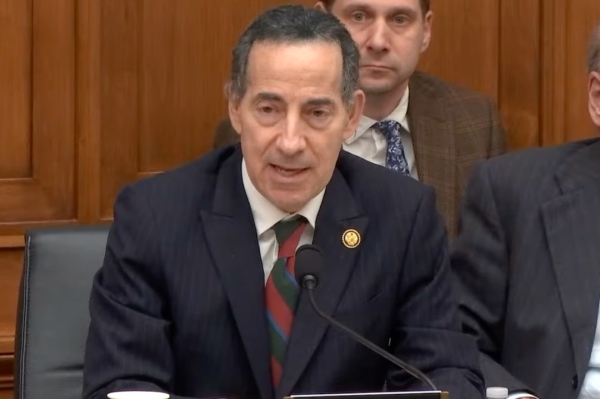Ask Chuck: What Does the Bible Say About Socialism?
Dear Chuck,
When I consider all the wars fought to protect America and a way of life that provides opportunity for any person with a good idea, I'm shocked by the rise of Senator Bernie Sanders as a socialist running for the American presidency. I read an article recently that noted, "For people under 30, socialism isn't a scary word," but shouldn't it be? What does the Bible have to say about socialism?
Concerned about the Next Generation

Dear Concerned,
The fascination with socialism that has risen during this election season I believe comes in part from a lack of understanding of how it really works within a society. Considering the impact of different forms of government, it's important to understand the fundamental issues of ownership and responsibility — and this is something that the Bible addresses directly.
I'm not a fan of socialism or communism — and neither is the Bible.
Throughout the scripture, from the first pages of Genesis, God gives men and women resources for their use — for their good and the good of others.
1 Timothy 5:8 says, "Anyone who does not provide for their relatives, and especially for their own household, has denied the faith and is worse than an unbeliever."
The responsibility was given to the individual, not delegated to the government.
Under capitalism, people own their property and businesses and are mostly free to use them as they see fit. But in today's politically correct environment a person's use of his or her own property is often mocked as selfish or greedy. Sadly, too many educators today undermine the confidence of our young people in our country's economic systems, insinuating that freedom to use the property isn't "fair" to those without.
Under socialism, people have limited ownership of property and businesses, which must operate under government control and regulation, and the government determines how all profits and property can be used. People who embrace the use of governmental power to suit their own social ends argue that this can create a kinder, gentler society as government decides who gets what, all in the name of helping the less fortunate. This assumes that good-hearted people, i.e. the government, are seizing the assets of less worthy people to give to the more deserving. And it matters WHO gets to decide the definition of "deserving." It sets up a system in which the government picks winners and losers, sometimes to gain the favor of voters.
Under communism, there is no veneer of personal ownership. The government owns and controls the property and the people exist as workers for the state, which controls all of their lives without pretense. In truth, it is the political leadership who control the power and property, and there is little access to opportunity for most people.
Having traveled around the world many times (I'm writing to you from Africa right now), I've seen the devastation of socialism and communism, as people struggle to overcome barriers that their governments impose, and suffer as much of their resources are taken from them.
But in the Bible, God clearly gives resources to people and then holds them accountable for their use of it (their stewardship).
Consider the story in Matthew 25 of the master going on a trip. He calls his servants to him and gives one 5 bags of silver to invest, one 2 bags of silver and the last servant one bag. They did not have the same resources, but they all had the same responsibility — to do their best with what they had. When the master returned home, he found that two of the servants had worked hard and rewarded them for their effort — not their outcomes. Even his praise for a job well done was the same, "Well done, my good and faithful servant. You have been faithful in handling this small amount, so now I will give you many more responsibilities. Let's celebrate together!"
And the servant who did nothing with what he was given? He was punished.
Throughout the Bible, the sluggard — the one who does not work or is lazy — is condemned and observed to experience disaster.
"A little sleep, a little slumber, a little folding of the hands to rest — and poverty will come on you like a thief and scarcity like an armed man." Proverbs 24:33-34
But for those whose work yields a profit, sharing with those in need is expected, and not something we can delegate to the government. The Apostle Paul was a great example of this, paying his own way as a tentmaker, and urging others to work to pay for themselves and others.
In Acts 20:35, Paul wrote, "In all things I have shown you that by working hard in this way we must help the weak and remember the words of the Lord Jesus, how he himself said, 'It is more blessed to give than to receive.'"
Socialism insinuates that the person who works is not deserving of the reward and breeds resentment against those who have success and it also weakens the connection between work and reward. Fundamentally, it violates the 10th commandment, "thou shalt not covet," by encouraging people to look at what others have, deciding what should be taken away. But to build lasting wealth and resources, labor is required.
As Christians, we are called to work to the best of our ability, to care for our families and those in need around us. Our work is one way that we communicate to the world around us what a life submitted to Christ can be. We want to honor God with our efforts.
Colossians 3:23 puts it well: "Whatever you do, work at it with all your heart, as working for the Lord, not for human masters."
If you would like to learn more about God's perspective on work and resources, consider joining our online financial Bible Study. To #Ask Chuck @AskCrown your own question, click here.






















